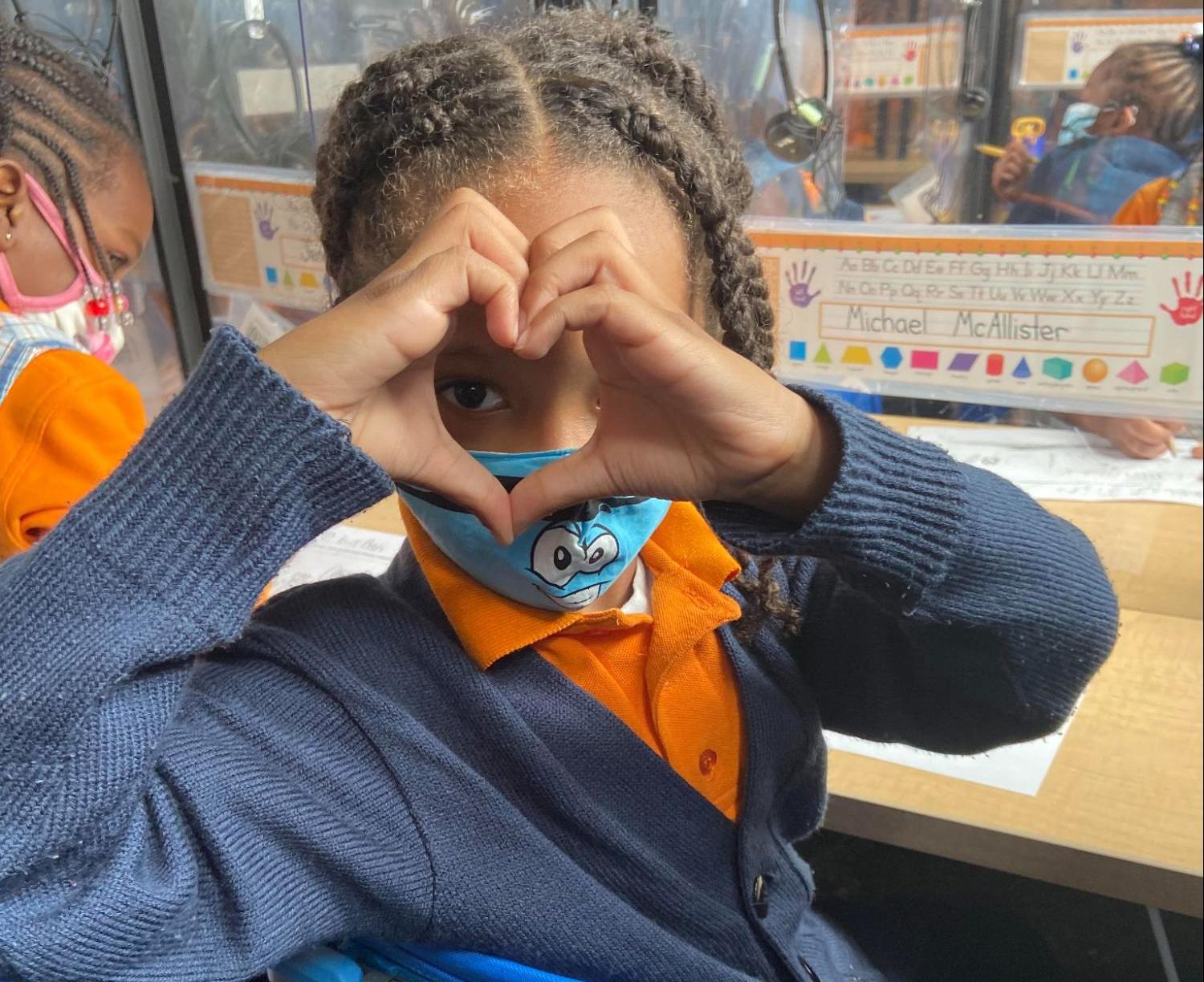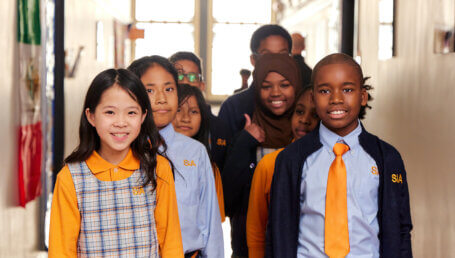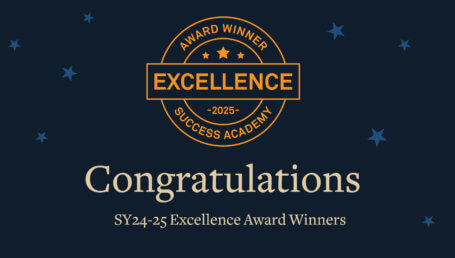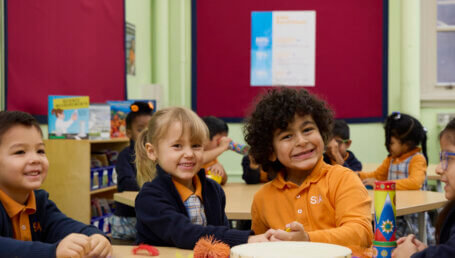
The school year is well underway, and it is so exciting to be together again in our classrooms. We love seeing scholars connect face-to-face and participate in hands-on science labs, team sports, and theatre productions alike. Nevertheless, we know returning to a new or unfamiliar learning space can be a challenging transition, and scholars might need some guidance on how to adjust. That’s why we’ve consulted the experts on staff—kindergarten teachers. After all, they help new learners adjust to the classroom environment year after year with great success. We asked four of our kindergarten teachers—each an Excellence Award recipient—to tell us how parents can help scholars acclimate to the in-person classroom environment. Here are their tips.
Communicate and ask questions.
Building relationships with your scholar’s teachers keeps you informed on your child’s progress while also providing them with a sense of stability. According to SA Springfield Gardens teacher Christina Labban, it’s reassuring for scholars to see that parents and teachers are on the same wavelength, directly communicating and reinforcing the same lessons at home and school.
You can also help your scholar adjust by asking them to reflect on their busy day at school. Kimberlynn Boardman, a teacher at SA Upper West, suggests asking specific questions about their coursework. “See if they can explain [what they’ve learned] to you,” she says. Ms. Boardman also recommends following up with questions like “How do I do that? Why does it need to be done that way?” Engaging with your scholar like this keeps you in the loop about what they’re learning outside of the home while also helping them improve their comprehension and conversation skills.
Practice, practice, practice!
As Star Darnley, who teaches at SA Rosedale, says, “School doesn’t really end once you leave the building.” She believes parents can help facilitate learning by following some school routines at home. For instance, Nicole Dailey, who teaches kindergarten at SA Crown Heights, encourages parents to set timers for their students like teachers do in school to help them complete tasks like homework efficiently.
Ms. Darnley, Ms. Dailey, and their colleagues also ask parents to follow some key COVID-19 prevention rules at home. This includes washing hands upon returning home and keeping a safe social distance from neighbors and strangers. Implementing these procedures helps protect everyone while simultaneously establishing a sense of continuity for scholars, a united front between home and school.
Furthermore, since our scholars are growing up in the age of technology, there are websites and learning programs your child’s teachers can recommend to supplement lessons at home. Ms. Labban lists several of these resources on her Google Classroom, including ABCya for fun educational activities and digital libraries like Epic. Since the previous year was fully remote, incorporating a virtual learning component at home can ease the transition back to the classroom while also building upon computer literacy skills.
Talk to your scholars about personal boundaries.
Hugs and handshakes may once have been a natural, acceptable form of greeting, but we are still navigating a pandemic, which means renegotiating physical boundaries. This especially presents a challenge for young scholars who have had little to no experience sharing the same space as their peers, but everyone could use a refresher.
Ms. Dailey uses the “personal box” analogy, telling her scholars to imagine four imaginary walls around themselves and their peers. “If you can touch them, you’re too close,” she says. “Use your words to express yourself [instead of grabbing] people… Ask questions like “‘Can I play with you?’ Or ‘Can I have a hug?’ That way you know [whether] that person feels comfortable.”
Ms. Dailey recommends talking to scholars about personal space and consent at home so that they are better equipped to make the classroom a safe space for everyone. Besides, there are other ways to get people’s attention or express our love for one another. And sometimes, we don’t even need words. The scholars in Ms. Dailey’s classes use silent signals like hand hearts to show their need for support as well as their affection for one another. Respecting others is simple, and if kindergarteners can learn to do it, everyone can.
This year has been a huge adjustment for everyone, and we hope these suggestions will help parents meaningfully support their scholars’ adjustment to the physical classroom.
“We’re your school family,” says Ms. Boardman, “so we’re here to educate [your child], but we’re also here to make learning fun and [ensure your scholar is] safe, all the time.” At Success Academy, we want scholars to feel at home in our classrooms, and we believe working closely with parents is the best way to help everyone adapt and excel.










